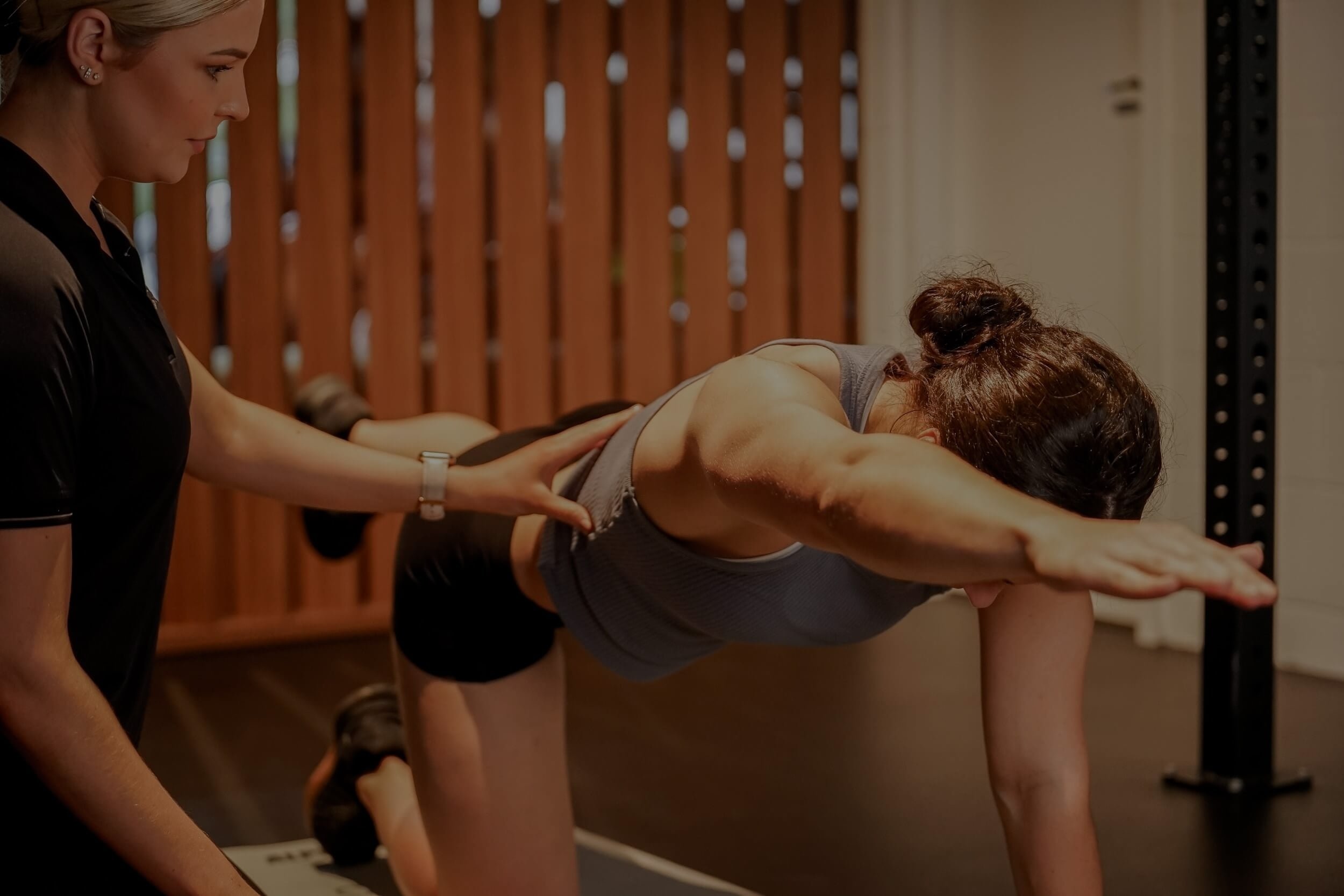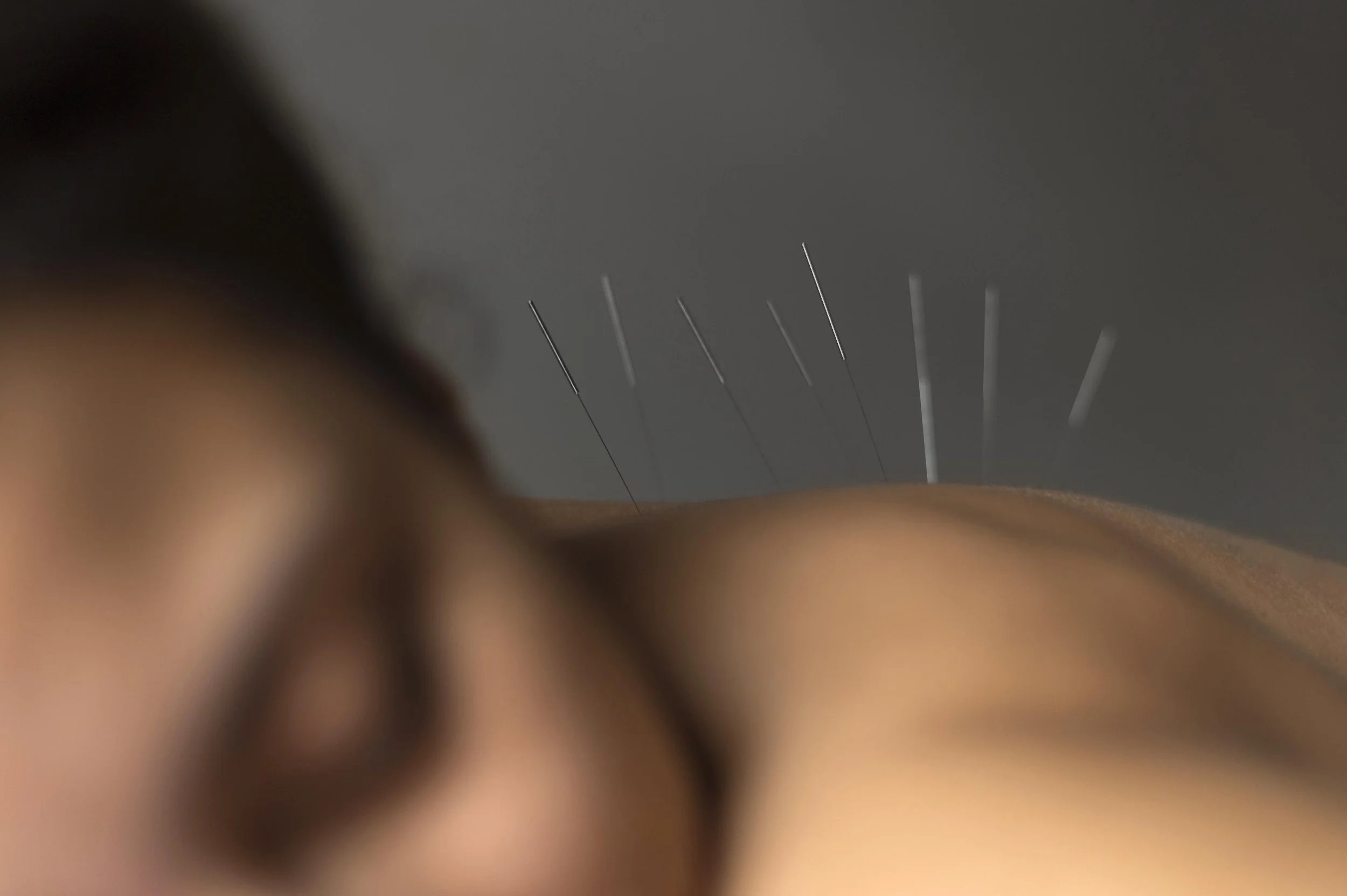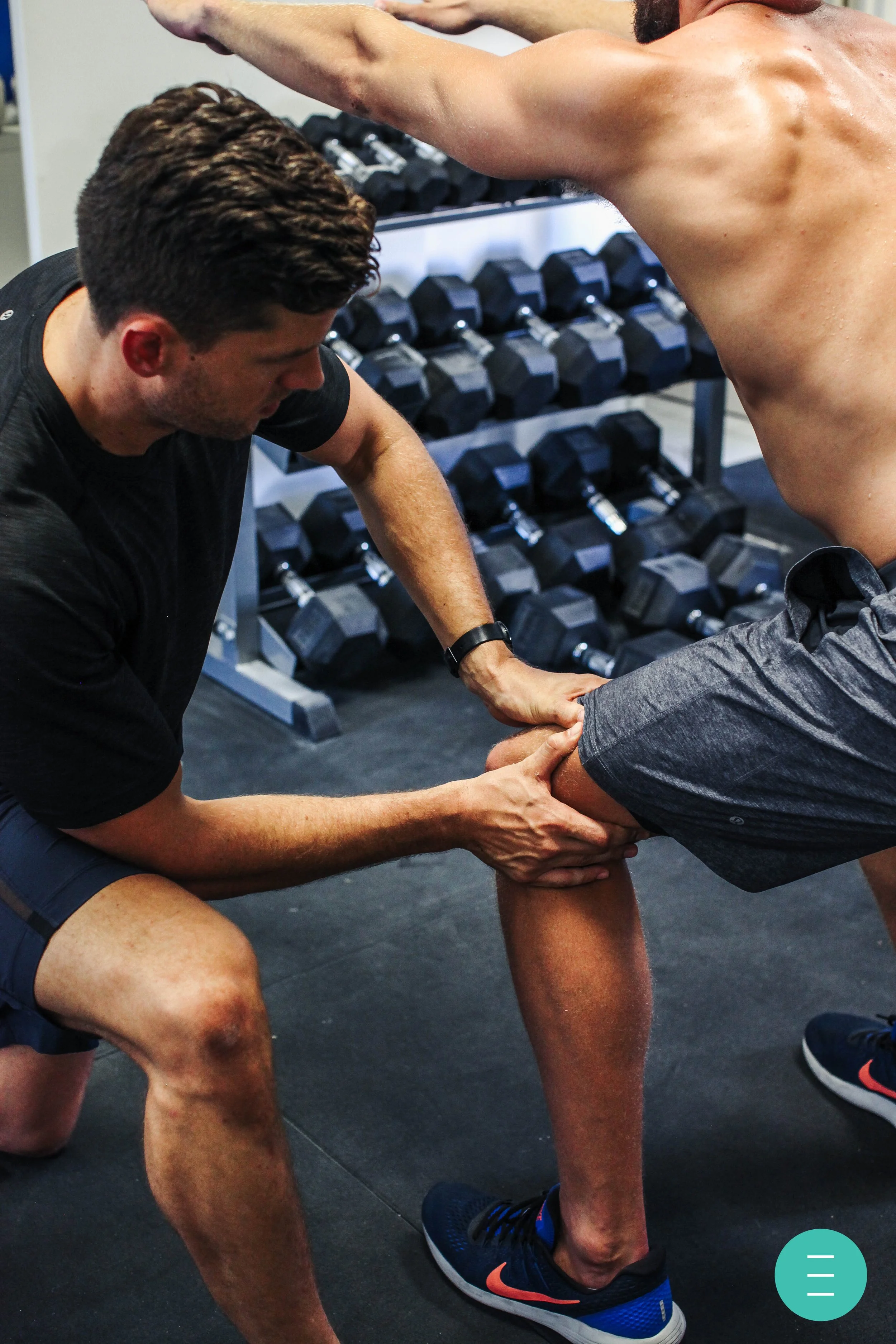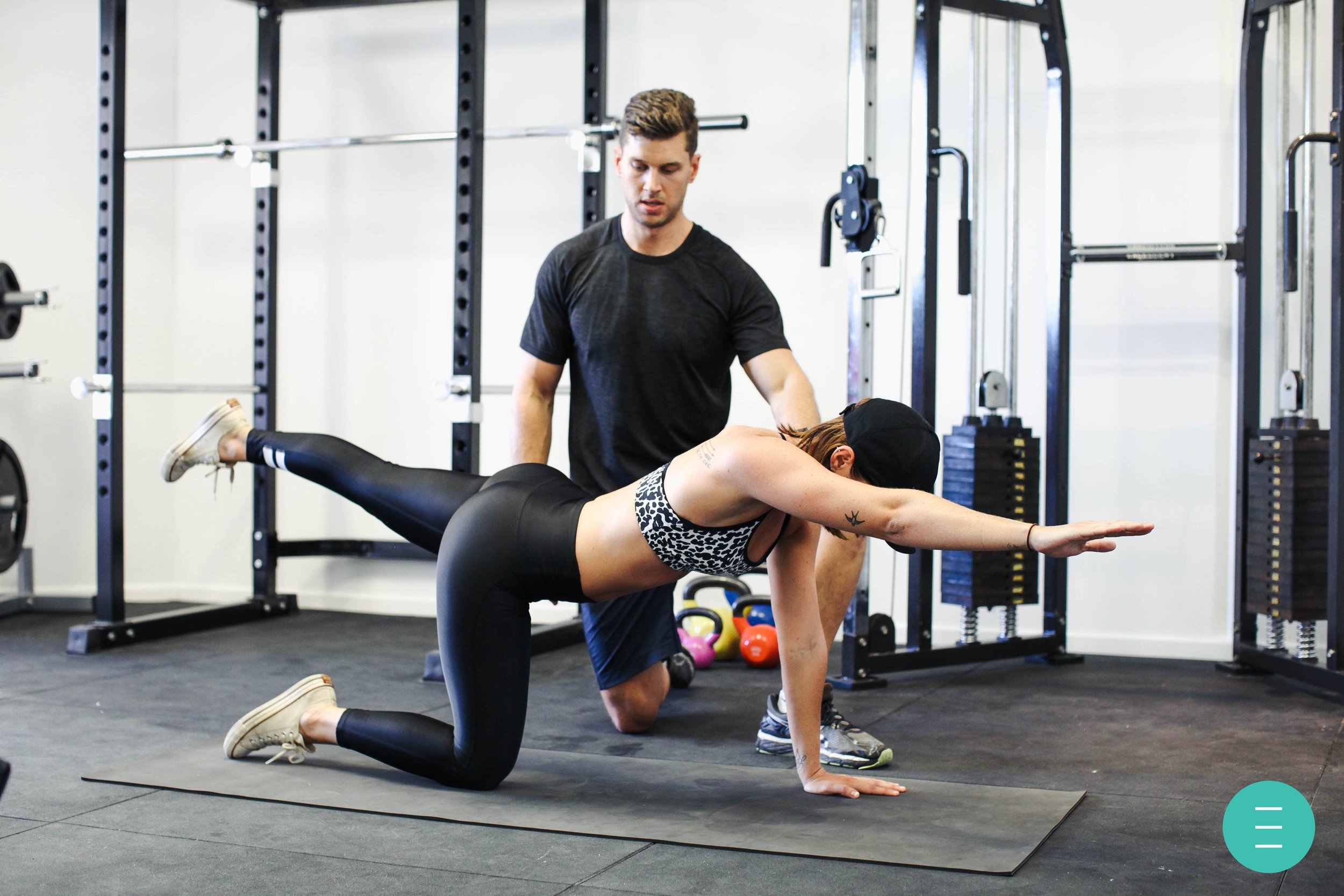
Chiro & Physio for ACL INJURIES
Struggling with an ACL injury? Our skilled team offers tailored chiro and physio care to support your recovery. Book now and start your path back to full strength!
Let’s fix your ACL Injury.
Whether it’s a partial tear, full rupture, post-surgery recovery, or strain, ACL injuries can seriously hold you back from moving with confidence.
The good news is, we can help! At Elite HP, we’ve supported countless clients through ACL rehab, from sports injuries to long-term knee issues.
We deliver tailored chiropractic and physiotherapy care to target the root cause of your knee instability and create a plan that helps you regain strength, movement, and control.
If you’re ready to move freely again, book an appointment today—we’re here to support your recovery.
What causes ACL injuries?
ACL injuries are a frequent concern, especially in active individuals, and can happen suddenly or build up over time. Common causes include sudden changes in direction, awkward landings, direct impact, or muscle imbalances.
To give you a clearer picture, we’ve broken it down into key factors:
-
A popping sound at the time of injury
Pain and swelling in the knee
Instability or the feeling of the knee giving way
Limited range of motion or difficulty bearing weight
-
ACL injuries can result from a range of activities or movements that place too much stress on the knee. Some of the most common causes include:
Sudden stops or changes in direction
Incorrect landing during sports
Direct impact to the knee
Muscle imbalances or weakness
Overtraining or lack of recovery
Poor movement mechanics
Previous knee injuries or joint instability
-
We treat a wide range of ACL-related issues—from fresh injuries to long-term instability and post-surgical recovery. Common conditions we help with include:
Partial ACL tears – pain, swelling, and instability during activity
Complete ACL ruptures – a full tear often needing surgical repair and rehab
Post-operative recovery – rehab after ACL reconstruction to restore strength and motion
ACL sprains – stretched but not torn ligament causing mild instability
Associated meniscus or cartilage damage – often occurs with ACL tears, leading to joint pain
Chronic instability – repeated “giving way” of the knee after past injuries
Re-injury or failed rehab – old injuries that didn’t heal properly or keep flaring up
Whether you’re recovering from surgery or trying to avoid it altogether, our skilled physios can create a personalised plan to rebuild stability, strength, and confidence in your knee.

Your recovery is our priority
At Elite HP, we’ve helped thousands of locals, from athletes to active professionals, recover from ACL injuries and get back to what they love doing.
Our team has global experience, having worked with pro sports teams and major workplaces across Queensland to manage and prevent knee injuries. Whether your ACL injury happened on the field, at work, or during everyday activity, we’re here to help.
We back the care we deliver. If you’re not completely satisfied with your first physiotherapy session, we’ll refund the full appointment fee—no questions asked.
If an ACL injury is holding you back, don’t put it off. Book your appointment today and take the first step toward lasting recovery.
How do we treat
ACL injuries?
Chiropractic or physiotherapy for ACL injuries starts with a detailed assessment to identify the root cause—whether it’s instability, muscle weakness, or poor movement patterns. From there, we create a tailored plan to reduce pain, rebuild strength, and prevent re-injury. Common treatments include:
-

Active Release Technique
Active Release Technique (ART) is a hands-on treatment that targets tight or restricted muscles, tendons, and fascia around the knee. We apply pressure while moving the leg through specific ranges to break up scar tissue and restore mobility. It’s especially useful in reducing tension in supporting muscles during ACL recovery.
-

Dry Needling
Dry needling targets deep trigger points in the muscles around the knee and thigh that may be limiting your range or causing discomfort. By stimulating a twitch response, it helps reset the muscle, reduce inflammation, and improve circulation, making it ideal for releasing tension in overcompensating, tight, or fatigued areas.
-

Exercise Therapy
As pain subsides, we guide you through structured rehab exercises to restore knee strength, stability, and coordination. These progressive, functional movements are essential for safely rebuilding confidence in your knee, whether you're returning to sport, work, or daily activity with ease, assurance, and long-term support.
-

Injury Rehabilitation
Our ACL rehab programs follow evidence-based progressions designed to rebuild strength, movement, and control safely over time. Using techniques like Functional Movement Screening, balance work, and progressive load training, we help reduce re-injury risk and support long-term health and performance.

Ready to say goodbye to your ACL injury?
What makes Elite HP different?
-

Pain-free living, not endless appointments.
We’re focused on long-term recovery, not endless appointments. Our aim is to identify the underlying cause of your ACL issue and build a plan that helps you stay strong, stable, and pain-free for good.
-

Immediate relief from your first session.
While some clinics spend the first few sessions just talking, we get started right away. After a quick assessment, we jump straight into hands-on treatment to give you relief and start your recovery immediately.
-

Physio, chiro, needling and more under one roof.
From physio and chiro to dry needling and targeted exercise rehab, we offer everything you need in one place. No need to bounce between clinics, we’ve got your ACL recovery covered from every angle.
ACL Physio FAQ
-
ACL physiotherapy focuses on restoring strength, stability, and range of motion to the knee after an ACL injury. It includes hands-on treatment, strength exercises, and movement retraining to support healing and reduce the risk of re-injury.
-
Yes, physiotherapy is essential after ACL surgery to regain full function, improve mobility, and rebuild strength. Without proper rehab, you may struggle with long-term stiffness, instability, or weakness.
-
In some cases, partial ACL tears can improve with structured physiotherapy and muscle strengthening. At Elite HP, we assess the severity of your injury and create a non-surgical treatment plan if appropriate.
-
Rehab time varies depending on the injury and your goals. For post-surgery cases, it typically takes 6 to 9 months. Non-surgical rehab for partial tears may be shorter. Your physio will guide you through each stage of recovery.
-
ACL rehab exercises usually include strength work for the quads, hamstrings, and glutes, as well as balance and agility drills. At Elite HP, we personalise your program based on your progress and activity level.
-
You can return to sport once you’ve regained full strength, stability, and movement, usually around 9 months post-surgery. A physiotherapist will test your readiness and help you transition safely.
-
Ongoing pain, swelling, instability, or lack of progress can indicate an issue with your rehab. If this sounds familiar, Elite HP can reassess your condition and create a more effective plan to get you back on track.








